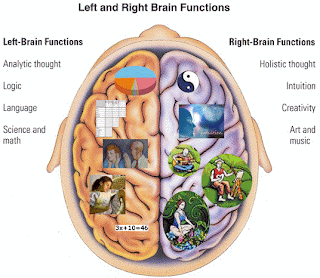WHAT IS PSYCHOLOGY ?
Psychology is the science of mind and behavior.Its immediate goal is to understand behavior and mental processes by researching and establishing both general principles and specific cases.For many practitioners, one goal of applied psychology is to benefit society.In this field, a professional practitioner or researcher is called a psychologist, and can be classified as a social scientist, behavioral scientist, or cognitive scientist. Psychologists attempt to understand the role of mental functions in individual and social behavior, while also exploring the physiological and neurobiological processes that underlie certain functions and behaviors. Psychologists explore such concepts as perception, cognition, attention, emotion, phenomenology, motivation, brain functioning, personality, behavior, and interpersonal relationships. Some, especially depth psychologists, also consider the unconscious mind.a Psychologists employ empirical methods to infer causal and correlational relationships between psychosocial variables. In addition, or in opposition, to employing empirical and deductive methods,some especially clinical and counseling psychologists—at times rely upon symbolic interpretation and other inductive techniques. Psychology incorporates research from the social sciences, natural sciences, and humanities, such as philosophy.
While psychological knowledge is often applied to the assessment and treatment of mental health problems, it is also applied to understanding and solving problems in many different spheres of human activity. Although the majority of psychologists are involved in some kind of therapeutic role (clinical, counseling, and school positions); many do scientific research on a wide range of topics related to mental processes and behavior (typically in university psychology departments) and teach such knowledge in academic settings; and some are employed in industrial and organizational settings, and in other areas.such as human development and aging, sports, health, the media, law, and forensics.
Psychology is the science of mind and behavior.Its immediate goal is to understand behavior and mental processes by researching and establishing both general principles and specific cases.For many practitioners, one goal of applied psychology is to benefit society.In this field, a professional practitioner or researcher is called a psychologist, and can be classified as a social scientist, behavioral scientist, or cognitive scientist. Psychologists attempt to understand the role of mental functions in individual and social behavior, while also exploring the physiological and neurobiological processes that underlie certain functions and behaviors. Psychologists explore such concepts as perception, cognition, attention, emotion, phenomenology, motivation, brain functioning, personality, behavior, and interpersonal relationships. Some, especially depth psychologists, also consider the unconscious mind.a Psychologists employ empirical methods to infer causal and correlational relationships between psychosocial variables. In addition, or in opposition, to employing empirical and deductive methods,some especially clinical and counseling psychologists—at times rely upon symbolic interpretation and other inductive techniques. Psychology incorporates research from the social sciences, natural sciences, and humanities, such as philosophy.
While psychological knowledge is often applied to the assessment and treatment of mental health problems, it is also applied to understanding and solving problems in many different spheres of human activity. Although the majority of psychologists are involved in some kind of therapeutic role (clinical, counseling, and school positions); many do scientific research on a wide range of topics related to mental processes and behavior (typically in university psychology departments) and teach such knowledge in academic settings; and some are employed in industrial and organizational settings, and in other areas.such as human development and aging, sports, health, the media, law, and forensics.









